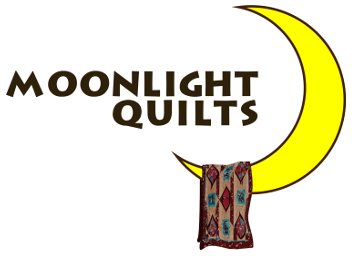Custom Quilt Buyer’s Guide
A custom quilt can be a wonderful and beautiful keepsake and when correctly made from the best materials, quilts can last for decades and be passed down from one generation to the next.
T-shirt quilts are an especially popular and modern take on a classic idea. Our grandmothers and great-grandmothers created quilts from old clothing, old linens, etc. and then embroidered them to capture memories. T-shirts are the modern equivalent.
T-shirt quilts can be made from t-shirts collected in during a period of time or even celebrating a career/event/hobby. Some examples of t-shirt quilts we’ve made:
- Athletic and/or competition t-shirts collected during high school or college
- Travel/tourist t-shirts collected during travels
- Work or career related t-shirts – military unit shirts, fire department events, etc.
- Hobby related t-shirts
- A quilt made from t-shirts that just don’t fit anymore because they’re a little too tight or worn out
NOTE: T-shirt quilts don’t always have t-shirts. They can be also include polo shirts, work shirts, and sports jerseys.
Many online companies offer custom t-shirt quilts that are very inexpensive. While an inexpensive quilt isn’t necessarily a bad quilt, it’s important to ask the right questions from your quilt provider to make sure whatever you buy will last. Cheap materials and poor technique will result in a quilt that breaks down over time, but it’s difficult for most people to know the difference between good quilt and bad one.
Here are some questions you can ask your quilt provider to make sure you get the best quality:
Questions To Ask Your Custom Quilter:
Q. How custom is your quilt?
Many internet websites offer decent t-shirt quilts at fair prices, but they aren’t always “custom”. The patterns, colors, and arrangement are usually very similar. The point of creating a t-shirt quilt is to have an heirloom that can be passed down – it’s important the quilt you buy is truly custom.
Q. Do you use cotton or polyester batting?
Polyester batting is inferior for a couple of reasons – it doesn’t breathe, and over time it can degrade substantially. Cotton batting, while more expensive, lasts longer and is more comfortable for everyday use. Cotton batted quilts also hang against a wall flatter and more beautifully than polyester batted quilts.
Q. Do you provide a storage bag with the quilt?
Most people leave their custom quilts out all the time, but sometimes it must be stored. Make sure your custom quilter provides an acid-free storage bag with your quilt. Acid-free is very important because it will prevent degradation of the fabrics.
Q. If making a t-shirt quilt, do you separate my t-shirts with sashing?
If you’re having a t-shirt quilt made, make sure that your quilter uses sashing (a ribbon of fabric between t-shirt squares) to seperate your t-shirts from one another. Sashing will help your t-shirt quilt to last longer as well as enhance the design.
Q. How do you build the quilt? Do you “flip and quilt” or do you bind?
The “flip and sew” method is an older, less time consuming method of making a quilt. While “flipped and quilted” is less expensive, it usually doesn’t hang or lay completely flat. The bind method that we use takes a little more time, but the finished product will lay or hang flat and look much nicer.
Q. What is the thread count, thread weight, and printing quality of the fabric you use?
If your quilter uses the best fabrics available, your quilt should last decades.
- Start by asking your quilter what thread count fabric they use – the best fabrics have a thread count of 75.
- As for thread weight, your quilter should be using fabric with a thread weight of 30-34.
- If possible, take a look at the sharpness of the printing on the fabric. Inexpensive fabrics usually have blurry and inconsistent printing, and they will degrade over time.
Q. Do you produce “fully quilted” quilts?
It sounds funny to say, but “fully quilted” quilts are vastly superior to quilts that are simply tacked at the corners of each panel. Make sure to find out how much quilting you’ll be getting.
Q. Are your quilts made in America?
Quilts made outside the U.S. aren’t necessarily bad, but make sure your quilter isn’t simply having your quilt assembled in a factory outside the U.S. and then passing it off as “homemade”.
